Contents
Show
Book LOLER Thorough Examination
Need your lifting equipment examined in line with LOLER98 regulations? Get a quote today to ensure you remain compliant.

Need your lifting equipment examined in line with LOLER98 regulations? Get a quote today to ensure you remain compliant.
Stay compliant. Stay safe. Book your examination today with SEIS – your trusted independent inspection & testing company in Boston.
Thorough examinations in line with LOLER98 are legally required, periodic examinations, for all lifting equipment. The aim of these examinations is to ensure equipment and workplace safety, and overall compliance in line with UK regulations. In turn protecting your workforce from potential hazards, and you from non compliance.
Book LOLER Inspection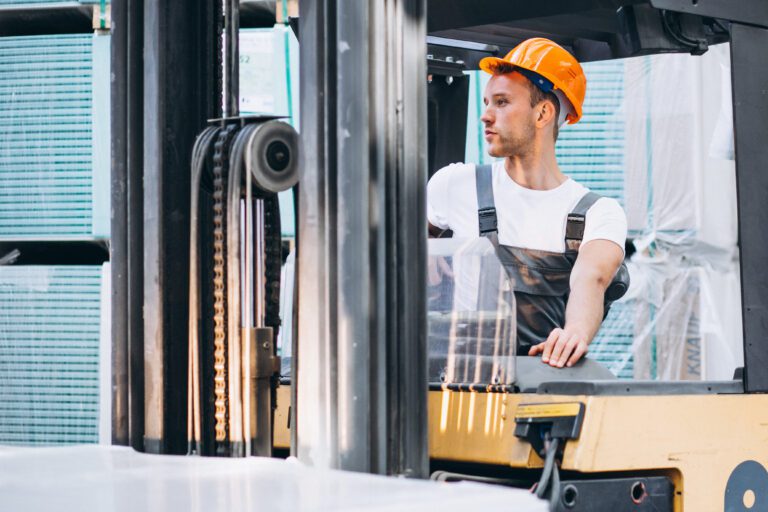
Boston is a historic market and port town located in south-east Lincolnshire, known for its rich medieval heritage and long-standing ties to international trade. Its name is believed to derive from St. Botolph’s Town, referring to a 7th-century Anglo-Saxon monk who founded a monastery nearby. Boston rose to prominence in the 12th and 13th centuries as a major port, particularly for the export of wool to mainland Europe, making it one of the wealthiest towns in medieval England.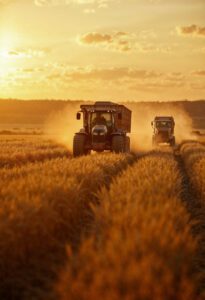
A key landmark is the St Botolph’s Church, commonly known as The Stump, which boasts one of the tallest parish church towers in England and serves as a symbol of the town’s historical importance. In the early 1600s, Boston also gained significance as the home of religious dissenters, some of whom became the Pilgrims who sailed to America on the Mayflower. Today, the town retains a strong sense of historical identity, with its medieval street layout, Georgian buildings, and active port reflecting centuries of commercial and cultural development.
Boston has a diverse industrial base, rooted in its traditional role as a centre for agriculture, food production, and logistics. The fertile fenland surrounding the town is among the most productive agricultural land in the UK, supporting large-scale cultivation of vegetables, salad crops, potatoes, and cereals. This makes Boston a key hub in the UK’s agri-food supply chain. Numerous food processing companies operate in and around the town, handling everything from packing fresh produce to preparing ready-made meals for national and international distribution.
One of the defining features of Boston’s industry is its port, which remains active and vital to the local economy. The Port of Boston handles the import and export of goods including grain, timber, steel, and fertiliser. It provides a strategic link to European markets and supports a network of transport, warehousing, and logistics businesses in the area. The presence of the port has also encouraged ancillary industries such as engineering, freight services, and cold storage facilities.
Boston has a strong migrant workforce, particularly from Eastern Europe, drawn to jobs in agriculture, food processing, and factory work. This has brought both economic vitality and demographic change to the town. Industrial estates such as Riverside Industrial Estate and Marsh Lane Industrial Estate host a mix of manufacturing, packaging, automotive services, and construction-related businesses.
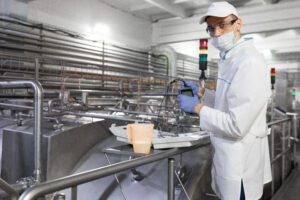
In addition to its traditional sectors, Boston is exploring renewable energy and sustainability initiatives, with several anaerobic digestion plants and energy-from-waste projects operating in the wider South Lincolnshire region. While challenges such as infrastructure and socio-economic inequalities persist, Boston continues to evolve as a key regional centre for food production, logistics, and rural industry.
Boston, Lincolnshire is surrounded by towns and villages whose development has been strongly influenced by agriculture, trade, and the waterways of the Fens. Nearby places such as Spalding, Sleaford, and Horncastle grew as market towns serving the rich farming land of the region. The fertile soil supported large-scale arable farming, particularly vegetables, cereals, and later sugar beet, making agriculture the foundation of the local economy.
Smaller villages including Kirton, Frampton, Wyberton, and Leverton combined farming with food processing and related industries. Milling, drainage engineering, and later food packing and canning became important as technology improved. The River Witham, the Haven, and an extensive network of drains and canals allowed goods to be transported efficiently, helping Boston develop as an important port for exporting agricultural produce.
In the modern era, industry around Boston has continued to evolve. Food production, storage, and distribution remain major employers, alongside logistics and light manufacturing. While traditional industries have modernised, the surrounding towns and villages still reflect Boston’s long-standing role as a centre for farming, trade, and transport within the Lincolnshire Fens.
LOLER regulations place strict duties on business owners and equipment operators. Any business in Boston that owns or operates lifting equipment must ensure that:
Lifting equipment is safe to use.
Examinations are carried out at regular, legally required intervals.
Inspections are conducted by a competent and impartial person.
Failure to comply can lead to heavy fines, prosecution, and serious safety risks.
At SEIS, we know that every business in Boston – whether in heavy industry, agriculture, healthcare, education, or automotive—depends on reliable, safe equipment. Regular LOLER inspections & LOLER testing reduces the risk of accidents, protect your workforce, and ensure smooth day-to-day operations. Compliance not only keeps you legal, but also demonstrates a strong commitment to employee safety.
Book LOLER InspectionA thorough examination under LOLER is a detailed and legally required inspection of lifting equipment. Unlike simple checks or maintenance tasks, a LOLER examination must be performed by an impartial, competent person and results in an official Report of Thorough Examination.
How often your lifting equipment in Boston needs to be inspected & tested depends on its type and use:
Every 6 months – For lifting equipment used to lift persons (e.g., passenger lifts, wheelchair lifts, patient hoists), or lifting accessories and attachments.
Every 12 months – For other lifting equipment (e.g., cranes, forklifts, goods lifts).
After significant changes or repairs – Equipment must be inspected immediately if it has been modified, damaged, or relocated.
LOLER requires inspections to be carried out by a competent and independent person—not by the equipment supplier or operator. At SEIS, we meet these exact criteria. Our inspections are impartial, unbiased, and always in line with UK regulations.
Book LOLER InspectionBusinesses in Boston use a vast range of lifting equipment, and at SEIS we provide LOLER inspections across them all.
Passenger lifts
Goods lifts
Vehicle lifts
Wheelchair and platform lifts
Overhead travelling cranes
Mobile cranes
Forklift trucks
Lifting tackle and accessories
Slings (chains, ropes, webbing)
Shackles and hooks
Lifting beams and frames
Chain blocks and lever hoists
No matter the type of equipment on your site, SEIS ensures every examination is completed thoroughly, with full reports for your compliance records.
Book LOLER Inspection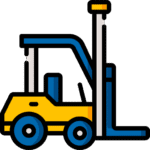
A thorough examination on a fork lift truck or reach truck ensures all safety critical components are identified in line with SAFed guidance MLCC 07, and the plant is examined in line with SAFed guidance LG 4. This includes a full structural integrity assessment, referencing specific guidances such as BS ISO 5057:2022 for fork arm inspections, and testing of any safety systems present.
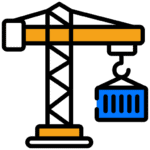
A thorough examination on a crane (all variants) ensures all safety critical components are identified in line with SAFed guidance MLCC 07, and the plant is thoroughly examined. This includes a full structural integrity assessment, referencing specific guidances such as BS ISO 4309:2017 for rejection criteria of the steel wire hoisting rope, and testing of any safety systems present.

A thorough examination on a motor vehicle lifting table (all variants) ensures all safety critical components are identified in line with SAFed guidance MLCC 07, and consideration is given to SAFed guidance MLCC 13 whilst the plant is thoroughly examined. This includes a full structural integrity assessment, referencing specific guidances such as BS ISO 4309:2017 for rejection criteria of the steel wire hoisting rope, any manufacturers guidance for inspection of load nuts and safety nuts, and testing of any safety systems present

A thorough examination on chain hoists, lifting tackle and lifting attachments (all variants) ensures all safety critical components are identified in line with SAFed guidance MLCC 07, and the plant is thoroughly examined. This includes a full structural integrity assessment, referencing specific guidances such as BS ISO 4309:2017 for rejection criteria of the steel wire hoisting rope, PM28 for non-integrated work platforms, and testing of any safety systems present.

A thorough examination on Passnger/Goods lift (all variants) ensures all safety critical components are identified in line with SAFed guidance MLCC 07, and consideration to SAFed guidance LG 01 is applied whilst the plant is thoroughly examined. This includes a full structural integrity assessment, referencing specific guidances such as SAFed LG01 for rejection criteria of the suspension ropes, any further manufacturers specific guidance for inspection and rejection criteria of suspension ropes, and testing of any safety systems present.

A thorough examination on Platform lifts (all variants) ensures all safety critical components are identified in line with SAFed guidance MLCC 07, and consideration to SAFed guidance LG 01 is applied whilst the plant is thoroughly examined. This includes a full structural integrity assessment, referencing specific guidances such as SAFed LG01 for rejection criteria of the suspension ropes, any further manufacturers specific guidance for inspection and rejection criteria of suspension ropes, manufacturers criteria on load nut rejection, and testing of any safety systems present.

A thorough examination on a vacuum lifting machine (all variants) ensures all safety critical components are identified in line with SAFed guidance MLCC 07. This includes a full structural integrity assessment, referencing specific manufacturers guidances, and testing of any safety systems present.

A thorough examination on a Mobile Elevating Work Platform (MEWP) ensures all safety critical components are identified in line with SAFed guidance MLCC 07. This includes a full structural integrity assessment, referencing specific manufacturers guidances, and testing of any safety systems present.
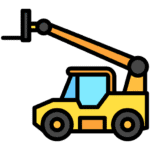
A thorough examination on a fork lift truck ensures all safety critical components are identified in line with SAFed guidance MLCC 07. This includes a full structural integrity assessment, referencing specific guidances such as BS ISO 5057:2022 for fork arm inspections, and testing of any safety systems present.
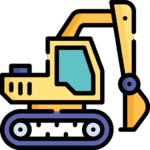
A thorough examination on a fork lift truck ensures all safety critical components are identified in line with SAFed guidance MLCC 07. This includes a full structural integrity assessment, referencing specific manufacturers guidances, and testing of any safety systems present.
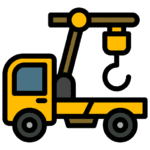
A thorough examination on a lorry mounted crane/ HIAB (all variants) ensures all safety critical components are identified in line with SAFed guidance MLCC 07, and consideration is given to BS 7121-2-4:2013 whilst the plant is thoroughly examined. This includes a full structural integrity assessment, referencing specific guidances such as BS ISO 4309:2017 for rejection criteria of the steel wire hoisting rope, and testing of any safety systems present (RCI & RCC).

A thorough examination on a personnel hoist, stair lift/ wheel chair stair lift and personnel sling (all variants) ensures all safety critical components are identified in line with SAFed guidance MLCC 07, and the plant is thoroughly examined.This includes a full structural integrity assessment, referencing specific manufacturers guidances, and testing of any safety systems present.

A thorough examination on a fork lift truck or reach truck ensures all safety critical components are identified in line with SAFed guidance MLCC 07, and the plant is examined in line with SAFed guidance LG 4. This includes a full structural integrity assessment, referencing specific guidances such as BS ISO 5057:2022 for fork arm inspections, and testing of any safety systems present.

A thorough examination on a fork lift truck or reach truck ensures all safety critical components are identified in line with SAFed guidance MLCC 07. This includes a full structural integrity assessment, referencing specific manufacturers guidances regarding load testing, referencing of MLCC01 for load chain elongation (if fitted) and testing of any safety systems present.
SEIS is proud to support Boston businesses with impartial, expert inspections. We understand the local industries, from agriculture to food production, and we tailor our service to meet your needs.
As an independent inspection provider, we do not sell or repair lifting equipment. This means you can trust our assessments to be impartial, unbiased, and fully in line with LOLER regulations.
Our team of qualified surveyors have years of hands-on experience across multiple industries. They know exactly what to look for and how to ensure your business remains compliant without unnecessary disruption.
We understand that downtime costs money. That’s why we work around your production schedule, conducting inspections efficiently and professionally so your operations continue smoothly.
Book LOLER InspectionWe make LOLER inspections & testing straightforward and hassle-free for local businesses.
Simply get in touch with our team, and we’ll arrange a time that works for you.
Our engineer surveyors visit your site and carry out thorough examinations with minimal disruption.
After each inspection, you’ll receive a clear, detailed report highlighting any defects and recommended actions.
We’ll manage your inspection schedule, reminding you before your next due date. Plus, you’ll have access to our online reporting portal, so your certificates are always at your fingertips.
Book LOLER InspectionChoosing the right inspection provider makes all the difference. Here’s why Boston businesses trust SEIS:
From the agriculture, food manufacturing to schools, and garages, we understand the unique challenges businesses here face.
We provide inspections for:
Heavy industry
Education
Healthcare
Automotive
We pride ourselves on safety, compliance, and customer service—always putting your needs first.
Boston is a market town and port in Lincolnshire, England, located on the River Witham.
The town’s name comes from “Botolph’s town,” named after St Botolph.
Boston was one of England’s most important medieval ports, especially for the wool trade.
St Botolph’s Church, known as “The Stump,” has one of the tallest parish church towers in England.
Boston developed extensive links with the Low Countries through trade during the Middle Ages.
The surrounding Fens provided fertile farmland, supporting agriculture and trade.
The Boston Stump has been used as a landmark for sailors navigating the Wash.
Boston played a role in the Protestant Reformation, with the “Boston Martyrs” remembered in the town.
The town later developed industries such as milling, food processing, and port-related trade.
Today, Boston has a mixed economy including agriculture, food production, logistics, retail, and services.
Booking with SEIS is quick and easy:
✅ Call our friendly team
✅ Fill in our online booking form
✅ Get your inspection arranged around your schedule
We’ll handle the rest, ensuring your equipment is inspected thoroughly, your compliance is up to date, and your workforce is kept safe.
A LOLER inspection, or thorough examination, is a legally required check of lifting equipment to ensure it is safe, compliant, and fit for use.
Inspections are required:
Only a competent and impartial person can perform LOLER inspections. At SEIS, our independent surveyors meet these requirements.
LOLER applies to:
and all lifting accessories used at work.
Yes. Whether you run a large factory or a small garage, any business operating lifting equipment must comply with LOLER.
Non-compliance can lead to fines, legal penalties, equipment downtime, and serious safety risks for staff.
No. SEIS works around your schedule to complete inspections efficiently, minimising downtime and disruption.
You’ll get a digital Report of Thorough Examination by email and access via our secure online portal.
Yes. We manage your compliance schedule and send reminders before your equipment is due for inspection.
Yes. Alongside Boston, we also serve clients across the county and nationally, across the whole of the UK.